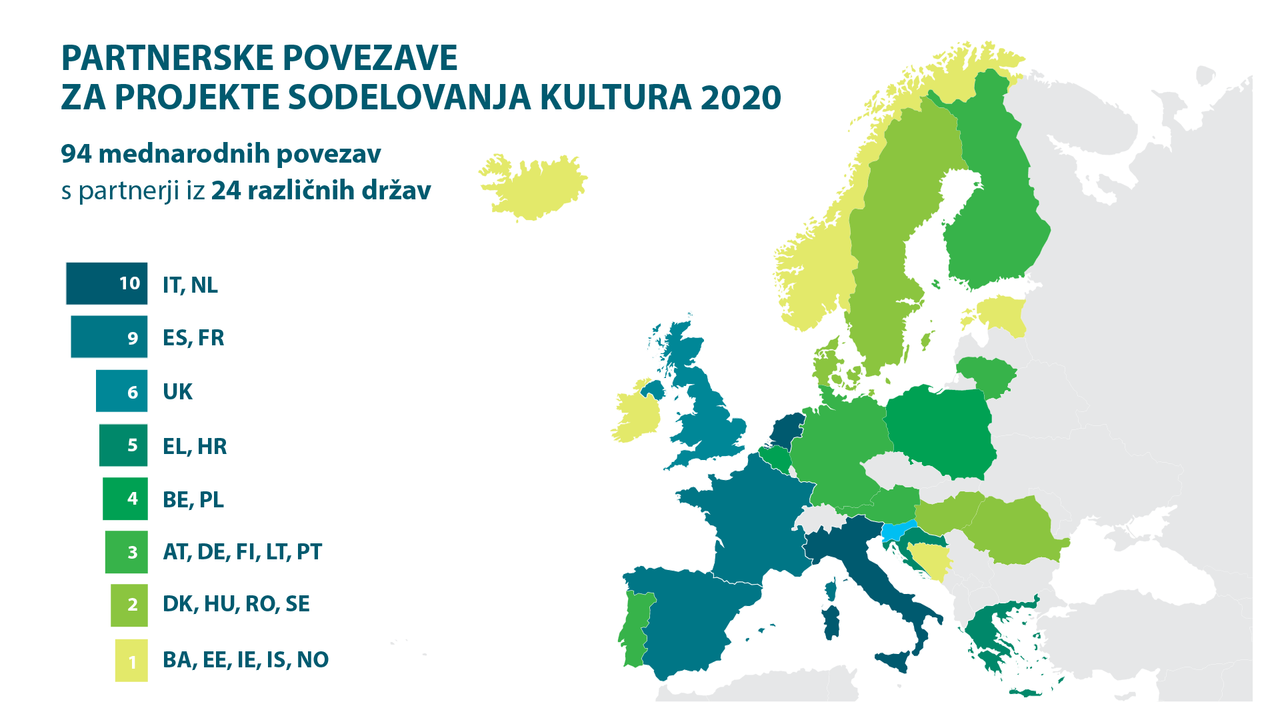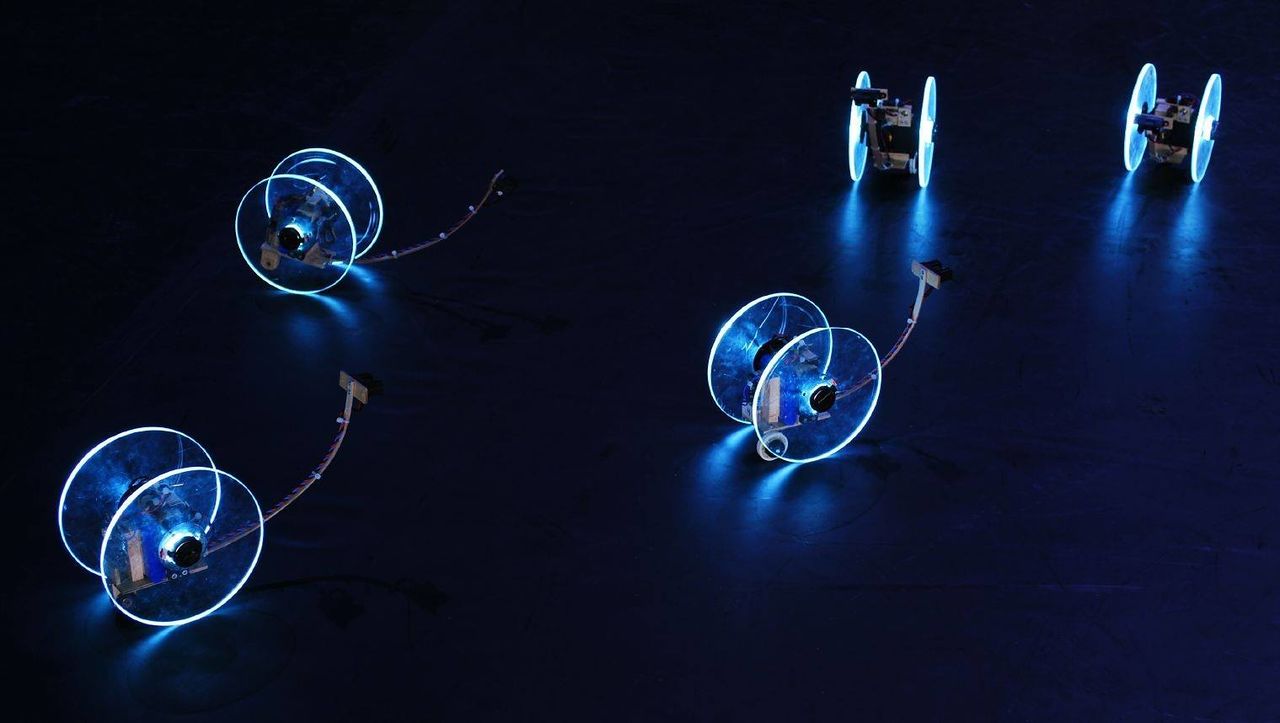Creative Slovenia in 2017: a fascinating feat!
Culture.si | Editorial
Since 1997 hundreds of cultural organisations from across Europe join in for a very special set of administrative and discursive protocols. New projects are painstakingly compiled and proposed each year as artists and producers aim for co-funding from one of the European Union's cultural programmes. Today these programmes are united under the name Creative Europe.
Worth about a billion and a half euros and covering the period between 2014 and 2020, Creative Europe is – to put it briefly – an instrument to support the creation of a shared European cultural space and identity. It is divided into two subprogrammes, the film-focused MEDIA, and the more diverse CULTURE, further partitioned into Literary Translations, European Platforms, European Networks and Cooperation Projects. It this latter one the Slovene cultural producers have consistently been excelling in with considerable panache. In fact, through an impressive performance of their application-genius, they have just managed to claim no less than 1.2 million of the roughly 35 million euros at stake for Cooperation Projects in 2017.

- Organisations by status
- Public
- Private
- Projects by field
- film and audiovisual projects
- interdisciplinary projects
- multimedia and new technologies
- books and reading / literary translation
- cultural heritage
- architecture, design and applied arts
- performing arts (theatre, dance, music)
- visual arts
- Organisation's role in the project
- beneficiary
- co-beneficiary
EU funding illustrated
The infographic above is based on an interoperability project carried out by Culture.si and CED Slovenia. It features data that relates to EU funding for culture as a whole, encompassing the film and audiovisual media programmes (up until 2014 led under a separate entity known as MEDIA) as well as the two seven year schemes for culture (these were preceded by some smaller programmes from the late 1990s, for which Slovenia was not eligible yet).
Each square represents one participant organisation and clicking on them will take you to the more in-depth project descriptions. The infographic itself shows the distribution of projects by art field, by the organisation's role in the project and – interestingly – by the organisation's status as either a public or a private entity.
Note that the 2017 project line (especially the blue squares, related to AV and film) is currently still incomplete.
Natural born cultural managers?
When analysing the results of the previous years (2007–2011 and 2014–2015), Peter Inkei of the Budapest Observatory already stated in 2016 that "Slovenia is the incontestable east-central European champion in the Creative Europe programme". Thus his recent statement is merely a reiteration, as he wrote in May 2017, that "the champion is again Slovenia with a 35% success rate".
What he is referring to with the success rate in 2017 is that out of 20 projects with a Slovene "project leader" (the projects are comprised of one lead organisation and several partner ones), 7 managed to be successful in obtaining funds. The other 74 endorsed projects – chosen out of the 548 submitted applications – feature 10 Slovene organisation as partners (which, between us, can often be the preferable position in terms of the funds/responsibility trade-off). With all this in mind, Inkei rhetorically wonders if Slovenes are "born cultural managers". They might be, but more probably it is the complex historic composition of the Slovene cultural landscape (especially the NGO scene) that should offer interesting clues in this regard.
There is, however, one factor that seems to stand out as rather important – the Creative Europe Desk Slovenia. This is the national information office for such matters, led by the small, but dedicated and trusted, NGO Motovila Institute. Recently, its crew, in a telling phrase that further elaborates Inkei's remark, has been labelled by one of the grant-winning producers as "our mothers".
Be that as it may, helping out the applicants with advice, conducting informative workshops and carrying out other matters of general support, CED Slovenia sports a systematic approach towards producing a community-based pool of skills, tricks, contacts, and the like.
Cooperation Project recipients in 2017
The chosen propositions from Slovenia are of course very diverse, ranging from digitally archiving the soundscapes of the today's society to enacting historic research on a certain family of baroque sculptors and painters. One would be hard pressed to find a common theme even as the wordings of project descriptions tend to be somewhat generic, their authors striving to align them with the supposed affinities of Brussels.
The composition of successful organisations is similarly miscellaneous, ranging from small faculty departments to big and venerated art producers. While 7 of the participating organisations haven't had any prior experience in EU's cultural programmes, the same number of others are veterans with at least three or more projects under their belts. What is somewhat striking in their composition is that public institutions have significantly boosted their Creative Europe profile, and have almost caught up with the previously much more industrious NGO sector.
- Aksioma Institute
- City of Women Association for Promotion of Women in Culture
- Department of Art History, University of Ljubljana
- Federacija Institute
- Gallus Foundation
- Goga Publishing House
- House! Society for People and Spaces
- Institute for the Protection of Cultural Heritage of Slovenia, Maribor Regional Office
- Kino Šiška Centre for Urban Culture
- Ljubljana Puppet Theatre
- Ljudmila Art and Science Laboratory
- Maribor Art Gallery
- Moderna galerija (MG)
- MoTA Museum of Transitory Art
- Pionirski dom Youth Culture Centre
- Sodobnost International Cultural Society
- Technical Museum of Slovenia
See also
- Creative Europe Desk Slovenia
- A list of ALL Slovene organisations ever funded by the Culture and MEDIA Programmes
External links
- April 2017 news from the Budapest Observatory, commenting on the Creative Europe Collaboration Projects 2017 results
- May 2016 news from the Budapest Observatory, also commenting on the Creative Europe Collaboration Projects 2016 results
- "The Story of 751 Bonds", a research paper on partnerships in EU-financed cultural projects, 2007-2011 and 2014-2015
- EU funding for culture? 4 observations from Slovenia, a blog post by Culture.si and Creative Europe Desk Slovenia
 <small class="imgdesc">The infographic featuring the international impact of 18 successful producers from Slovenia who have received the Creative Europe funds in 2020 for cooperation with 94 partners from 24 countries!ration with 94 partners from 24 countries! +
<small class="imgdesc">The infographic featuring the international impact of 18 successful producers from Slovenia who have received the Creative Europe funds in 2020 for cooperation with 94 partners from 24 countries!ration with 94 partners from 24 countries! +


